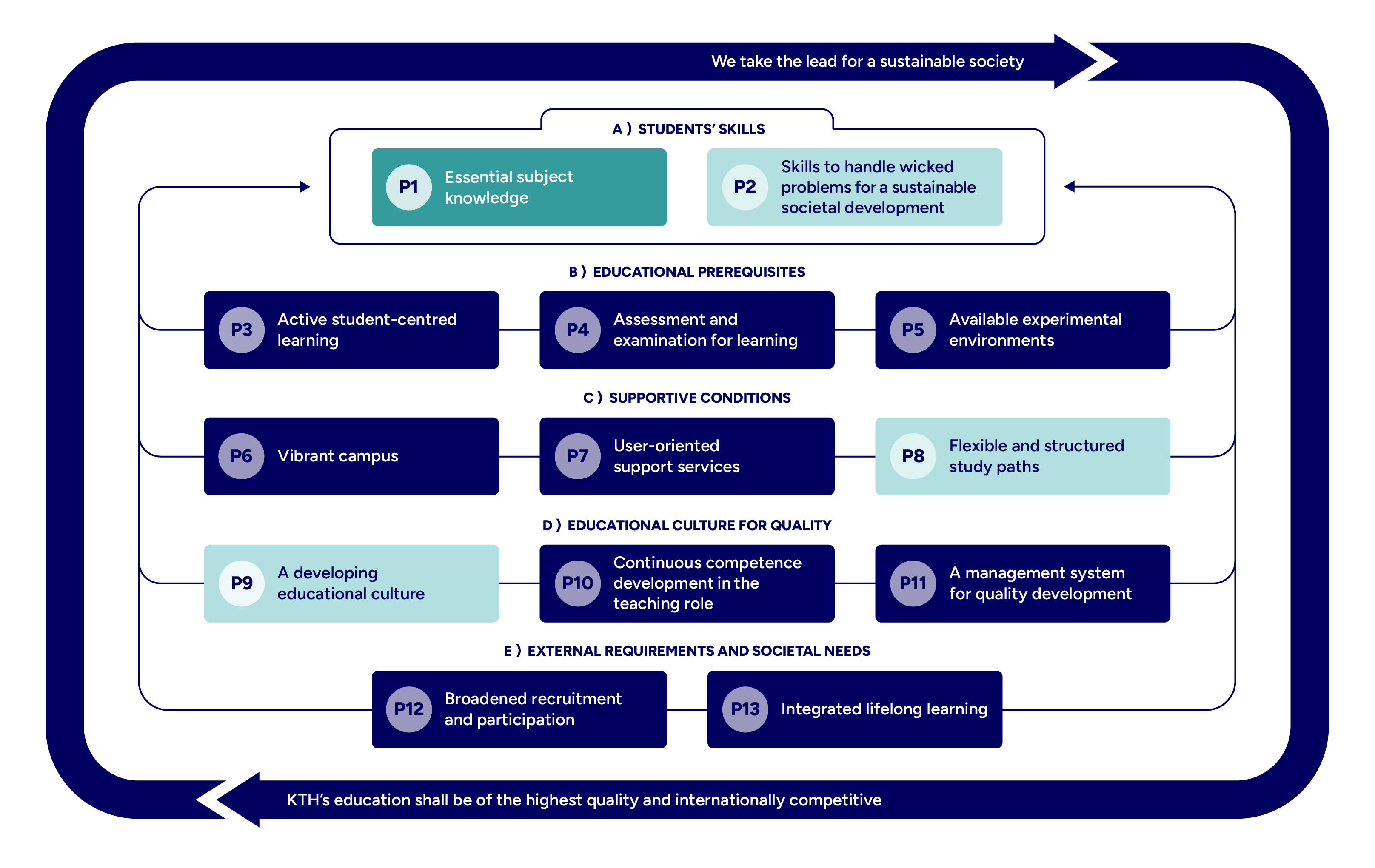Analysis for the development of the Vehicle Engineering Degree Programme
The project involves a stakeholder and needs analysis for the development of the Degree programme in Vehicle Engineering, adding solutions for e.g. resource-efficient vehicles, complex but sustainable transport systems, and transport issues on a more comprehensive level.

Project context
The 5-year Degree Programme in Vehicle Engineering (CFATE) at KTH is unique in Sweden and vehicle engineers are in high demand by various sectors of society. The programme opens doors to careers in development and research within transport means such as trains, cars, airplanes, ships and spacecraft, and transport of goods and people is included in almost all industries in today's globalised world. Enabling displacement implies a strong focus on dynamics and moving mechanical components, addressing comfort, noise, and efficient mechanical interactions.
To meet and address future societal challenges, a review of the current content of the programme is required. The programme's basic technical learning content works very well, but there is a need for solutions for resource-efficient vehicles, complex but sustainable transport systems and transport issues on a more comprehensive level. An expanded systems perspective and interdisciplinary aspects need to be included.
At the same time, research in change management has progressed. To prepare us for a world with an ever-increasing rate of change, this need for change could be used to test a change management model that creates the ability to handle future change needs, a so-called generative change management model. This becomes even more important as today, the programme director (PA) is a leader without power, due to the educational structure. The collaboration is nowadays very dependent on the willingness of teachers to be engaged in the programme.

Purpose (outcome)
The purpose of the project is to explore the possibilities for developing the programme to meet current and future needs, with the addition of new learning content at both Bachelor's and Master's levels, by conducting a stakeholder and needs analysis and engaging all our stakeholders for a strong and broad anchoring throughout the process, according to (at least) the first three steps of the generative change management model from the book “The Dynamics of Generative Change” (Bushe, 2019).
Project results (output)
- Study of ‘lessons learnt’ from other, previous programme change projects
- Comparison with existing programmes in other learning environments
- Survey and collection of insights and views from the programme team and other internal stakeholders, with establishment of a culture for change and a collegial view of the change process
- Interview study by the Student Section for Vehicle Technology with both alumni and upper secondary school students
- Inquiries with industry to ensure that the programme content meets the demands of the labour market and to identify the added value a vehicle engineer brings.
- A first structural analysis of the programme with focus on the development of the Bachelor’s part, with a looser approach to the specializations at Master’s level. Selection of a limited number of Master’s specialisations that constitute a test group for selection of new learning content and programme connections (progression in new learning content).
Time plan
Start date: 2023-08-15
End date: 2024-06-30
Note: The project will continue after the initial stakeholder and needs analysis that takes place within the Future education programme. The goal is to launch a pilot of the developed programme for KTH's 200th anniversary in 2027, with an evaluation of the change model used.
Project documentation
If you have a KTH ID, you can read the latest project documents when logged in:
- Project initiation document: Projektdirektiv_FrU23_2318-SCI_Nulägesanalys-Farkost.pdf (Swedish)
- Poster: Poster_FrU24ht_2318-SCI_Nulägesanalys-Farkost.pdf (Swedish)
